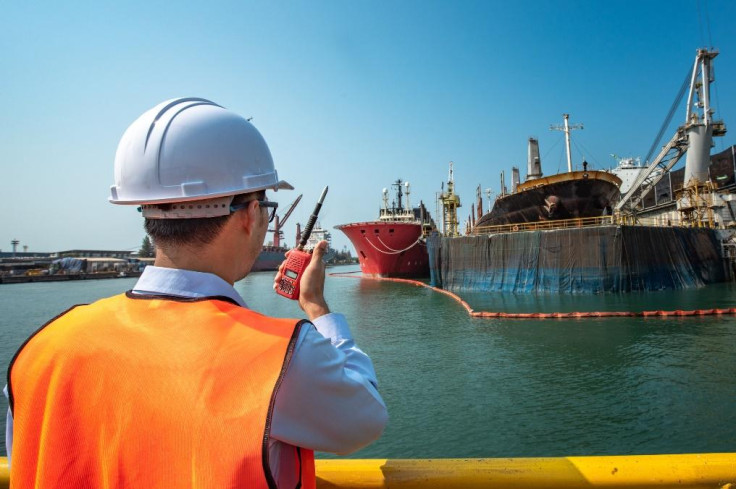Navigating Global Trade Uncertainty: Calls For Clarity To Drive Shipping Innovation Intensifies
Lakhani supports vessel owners by connecting them with trusted recycling yards worldwide

Global trade policies are having a growing impact on the shipping industry, shaping everything from shipping routes to business costs and operational efficiency. Whether through protectionist measures or the promotion of free trade, these policies can drastically alter the landscape for global shipping.
In today's volatile environment, industry leaders like Tahir Lakhani play a critical role. e, helping them manage these shifting tides.
For shipping companies, adaptability and agility are now more essential than ever in navigating the increasingly complex global trade environment.
Trade Policy, Uncertainty and Industry Impacts
The global shipping industry is susceptible to changes in international trade policies. Whether pushing for protectionism or encouraging free trade, these policies can drastically reshape shipping routes, business costs, and overall operational efficiency. For global shipping companies, staying ahead of these changes is key to maintaining a competitive edge.
Historically, free trade agreements have played a crucial role in opening new routes, reducing tariffs and streamlining the movement of goods across borders. Agreements like the Trans-Pacific Partnership or the EU Single Market have made international shipping more accessible, reducing actual and administrative costs. Yet, trade policies can also serve as significant obstacles.
The rise of protectionism and domestic industrial policy, as well as the increasing use of trade as an arm of foreign policy, has led to a proliferation of trade barriers and tariffs. The US-China trade war has impacted American and Chinese shipping companies and the broader economic community.
These measures can force companies to reroute ships, increasing transit time and operational costs. Politically motivated tariffs on certain goods may make it economically unfeasible for businesses to ship them across certain borders, reducing shipping volumes and impacting the wider profitability of one of the most crucial industries in the world.
Calls for Clarity

Industry analysts and trade experts are increasingly calling for greater clarity and certainty in global trade policies so companies are not impacted by regulatory change waves. Partners at Reed Smith LLP Nick Austin and Thor Maalouf noted in a recent podcast that the current geopolitical landscape and shifting decarbonization regulations are making it difficult for shipping companies to plan their long-term strategies.
Geopolitical Turbulence
Beyond trade policies, the shipping industry is also grappling with the impact of geopolitical tensions. Conflicts such as the Houthi escalations off the Yemeni coast and security issues in the Straits of Hormuz pose severe risks to global shipping operations. Sanctions on countries like Iran and Russia complicate matters further, forcing companies to navigate a web of legal and logistical challenges.
Long-term relationships with trusted partners are more important than ever in this context. Companies that can rely on established networks, like those cultivated by Tahir Lakhani, are better equipped to handle these complexities. By fostering strong partnerships, Lakhani has positioned himself as a key player in mitigating risks and ensuring the smooth flow of goods even in the most challenging environments.
Tahir Lakhani and the Future of Shipping
As the global shipping industry continues to evolve, the ability to adapt to new challenges will determine which companies thrive. Tahir Lakhani is leading the charge, providing innovative solutions and building robust networks that enable the industry to navigate the intricate web of international shipping.
In an unpredictable world where trade policies and geopolitical tensions can shift overnight, the importance of having reliable partners cannot be overstated. Whether dealing with environmental regulations or the ever-changing landscape of global trade, Lakhani's efforts highlight the critical role of strong, stable relationships in securing the shipping industry's future.
The global shipping industry stands at the intersection of international trade, environmental imperatives, and geopolitical challenges. While these do offer significant obstacles, those firms willing to adapt, lean on strong partnerships and innovate their operational procedures will be the ones to successfully navigate the intricate web of international shipping.
© Copyright IBTimes 2025. All rights reserved.





















